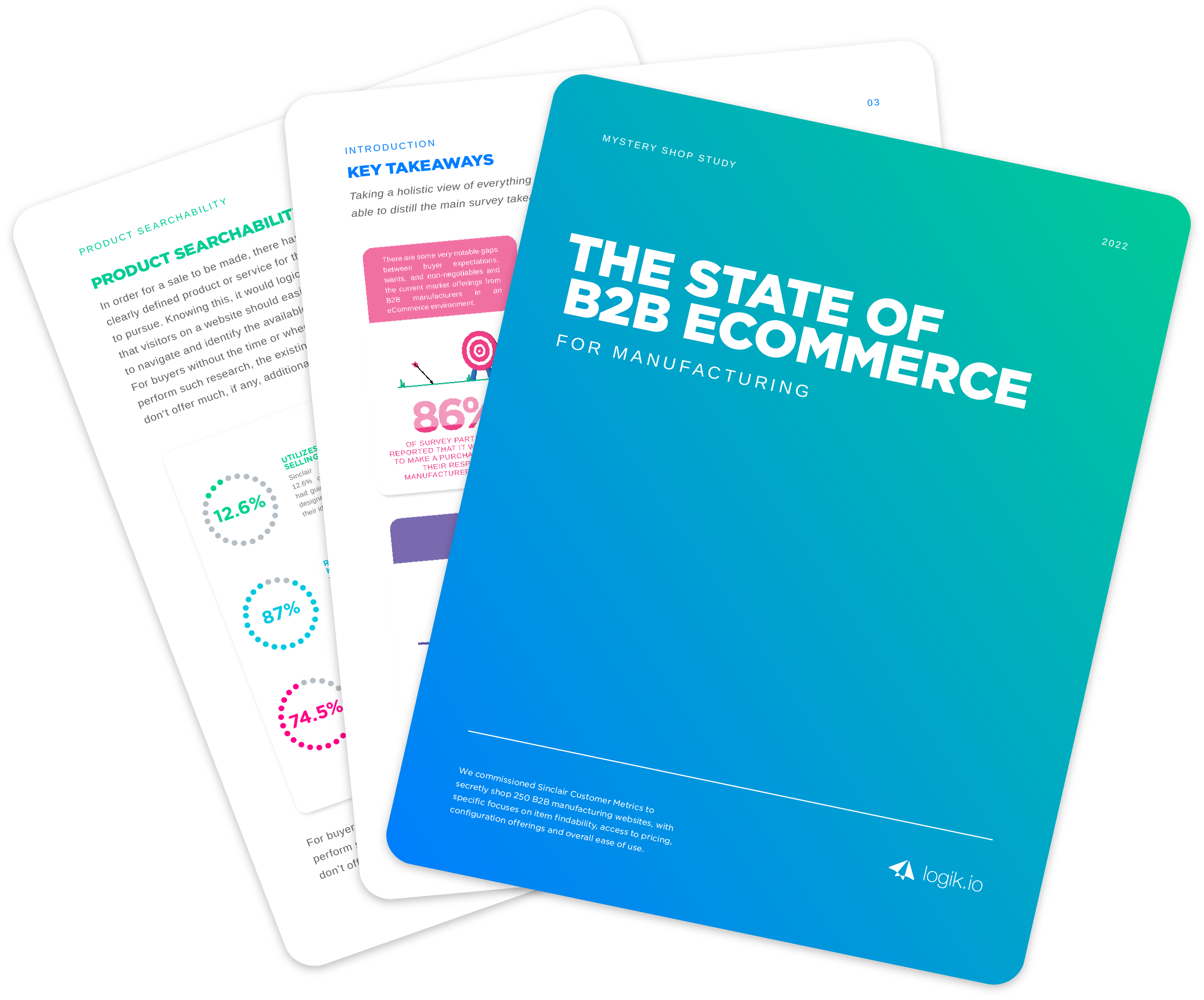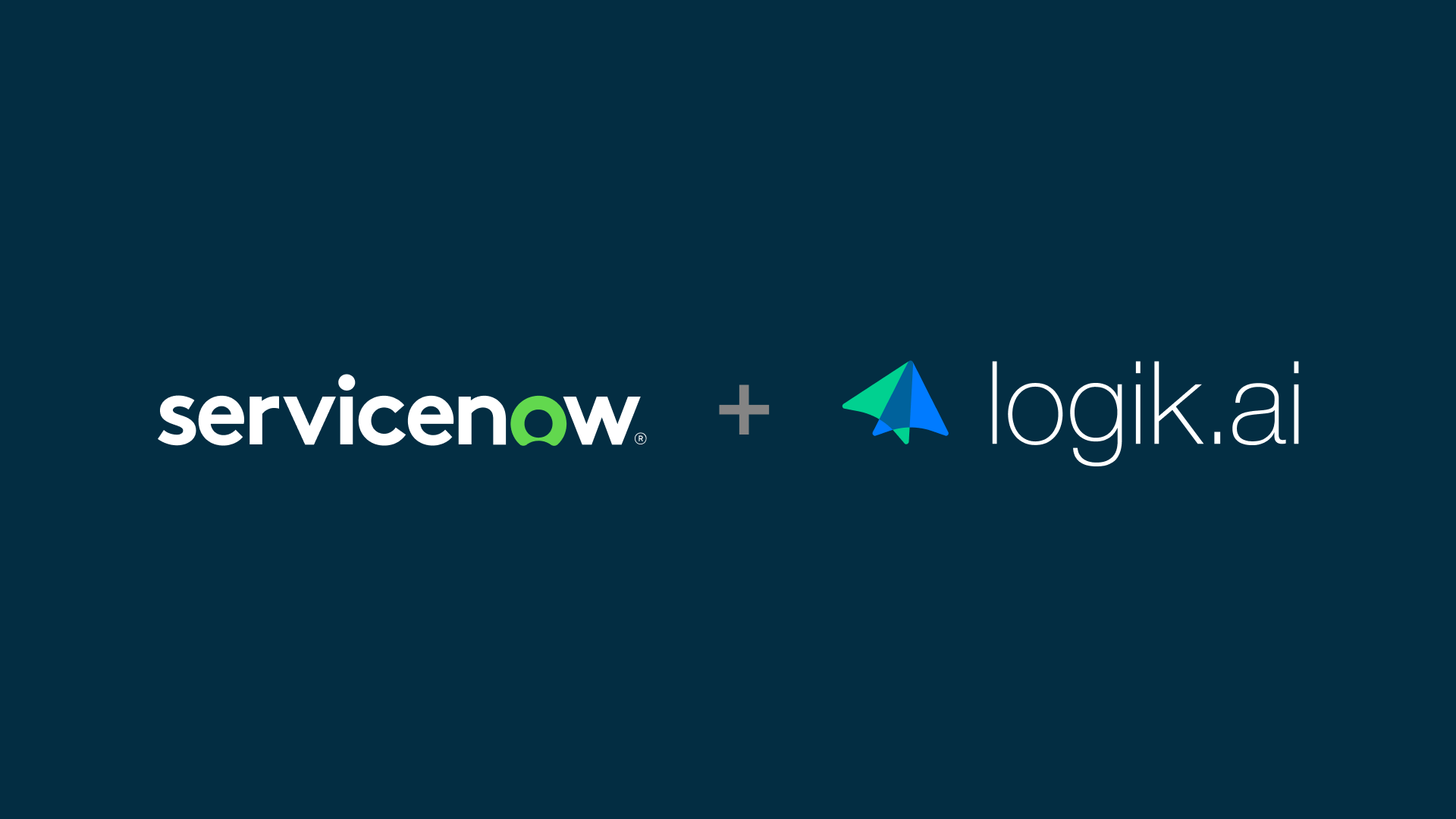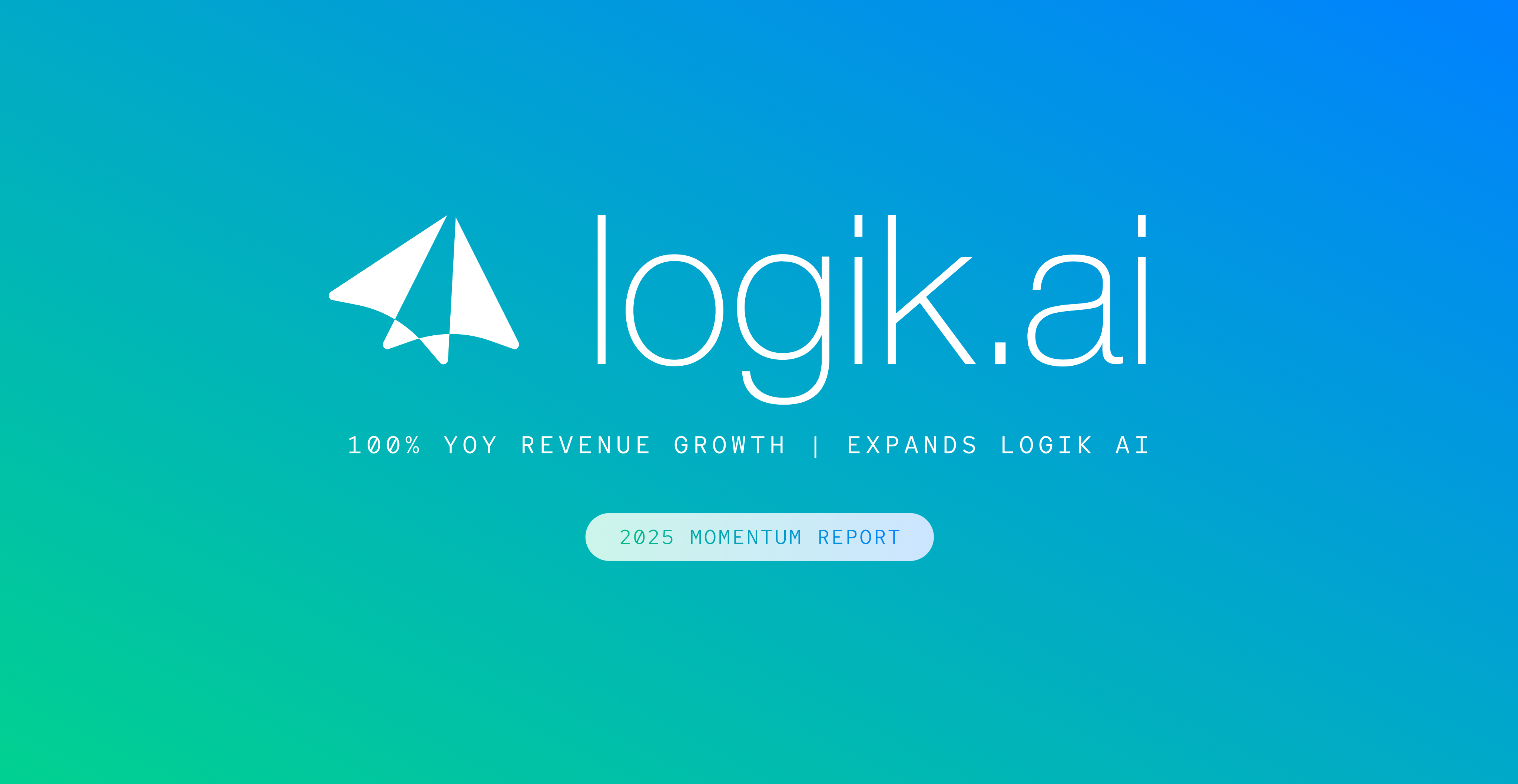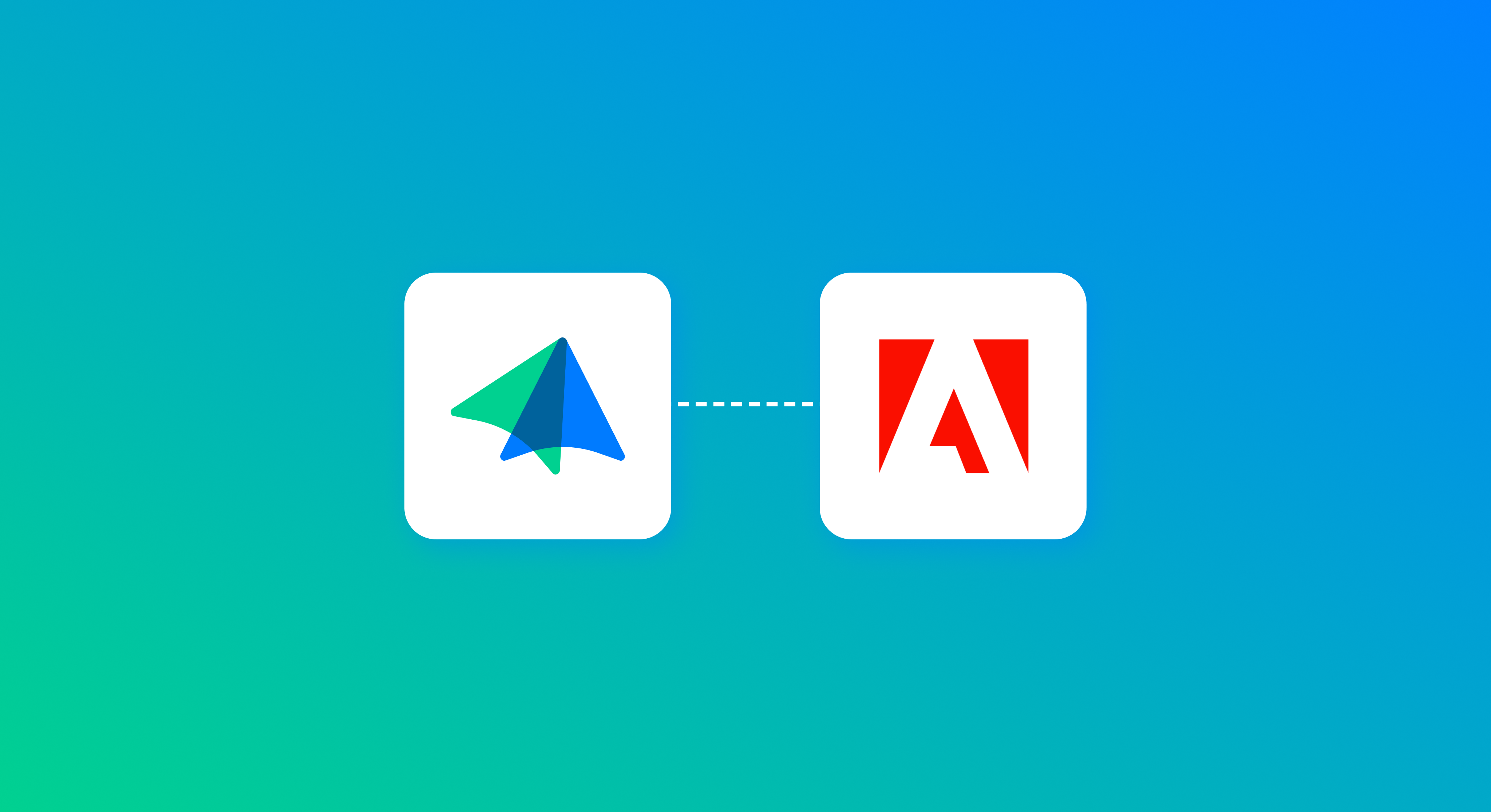New study reveals few manufacturers meet online customers’ needs; shows tremendous opportunity for businesses to distinguish themselves from competitors
CHICAGO, July 27, 2022 – American manufacturing e-commerce generates $2.4 trillion in value annually, yet a new study released today shows that most firms don’t optimize their online marketplaces to meet the needs of the modern B2B buyer. Logik.io — creators of Commerce Logic Engine technology powering configuration for e-commerce and CPQ experiences — commissioned the study through a third-party firm, which evaluated the effectiveness of 250 e-commerce shopping channels built by B2B manufacturers.
- The results, as shared in Logik.io’s “State of B2B E-Commerce for Manufacturers” report, serve as a wake-up call to the manufacturing industry. Here are some key findings:
- Just 12% of companies offer a guided selling experience on their website.
- More than half the time (57%), it takes shoppers three steps or more to find a product detail page.
- Four of every five companies’ B2B-commerce sites (86%) offer no upselling, cross-selling, add-ons or complementary products.
- Nearly three of every four shoppers (74%) feel the need for previous experience with that company’s products to understand its site navigation, meaning a first-time buyer’s customer journey is a struggle on most platforms.
“The needs and expectations of B2B buyers are evolving rapidly, and the demands of a company’s self-service buying experience are growing,” says Logik co-founder and CEO Chris Shutts. “We believe companies must adapt to these customer desires and see first-hand the maturity — or immaturity — of their B2B e-commerce methods.”
“Ultimately, we wanted to get an unbiased assessment of how easy or difficult it is to configure, price, quote, and buy B2B manufactured products online,” Shutts says.
Additional shortcomings the study gleaned from manufacturer’s e-commerce sites include:
- Only a quarter of companies (24%) provide upfront pricing for the product.
- Merely one of every five companies (19%) offers a product configuration experience on their website.
- Just one of five manufacturers (20%) offers buyers the ability to purchase products from their site.
- A significant portion (80%) say the website was not easy to buy through.
“The needs and expectations of B2B buyers are evolving rapidly, and the demands of a company’s self-service buying experience are growing,” says Logik co-founder and CEO Chris Shutts. “We believe companies must adapt to these customer desires and see first-hand the maturity — or immaturity — of their B2B e-commerce methods.”
“Ultimately, we wanted to get an unbiased assessment of how easy or difficult it is to configure, price, quote, and buy B2B manufactured products online,” Shutts says.
Additional shortcomings the study gleaned from manufacturer’s e-commerce sites include:
- Only a quarter of companies (24%) provide upfront pricing for the product.
- Merely one of every five companies (19%) offers a product configuration experience on their website.
- Just one of five manufacturers (20%) offers buyers the ability to purchase products from their site.
- A significant portion (80%) say the website was not easy to buy through.
“What we’re discovering is most B2B manufacturers are very early in their e-commerce journey,” Shutts says. “Companies still make it difficult for customers to find, configure, price, and buy products in a self-service manner, creating more friction points than favorable experiences.”
Yet Shutts and Logik.io are steadfastly optimistic about businesses’ ability to separate themselves from competitors.
“There’s a massive opportunity for manufacturers to differentiate themselves from their peers and level up their e-commerce experience,” he offers. “But companies that stay status quo and do not evolve their digital experience will be left behind.”
Shutts points to early innovators that are using technology to remove buying friction and prioritize their e-commerce experience. He acknowledges a gap between buyer expectations and company execution, but the correct CPQ solution can overcome this obstacle.
Logik tasked third-party shoppers to evaluate 250 manufacturers’ B2B websites for four key elements:
- Ease of navigation and finding products.
- Ability to find pricing for products sought.
- Configurability and customization capabilities of products on the site.
- Overall ease of use and purchase ability on the e-commerce site.
To check out the full report or for more information on Logik, visit https://learn.logik.io/state-of-b2b-ecommerce.
ABOUT LOGIK.IO
Logik.io’s Commerce Logic Engine helps businesses sell more effectively through their direct sales teams and digital commerce channels by consumerizing the way they sell their products with guided, flexible, and intuitive selling experiences for CPQ and eCommerce. Logik.io’s headless engine governs the logic, rules, and recommendations that direct how products can and should be configured and sold, making even the most sophisticated products simple to sell, allowing teams to sell more, sell faster, and maintain less. Logik.io was founded by a proven team with decades of experience in the sales technology space and is backed by High Alpha and Salesforce Ventures. Learn more at logik.io.
CONTACT:
Kate Ryan
BLASTmedia for Logik.io
317.806.1900 ext. 153 740.525.7433
kate_ryan@blastmedia.com




SHARE